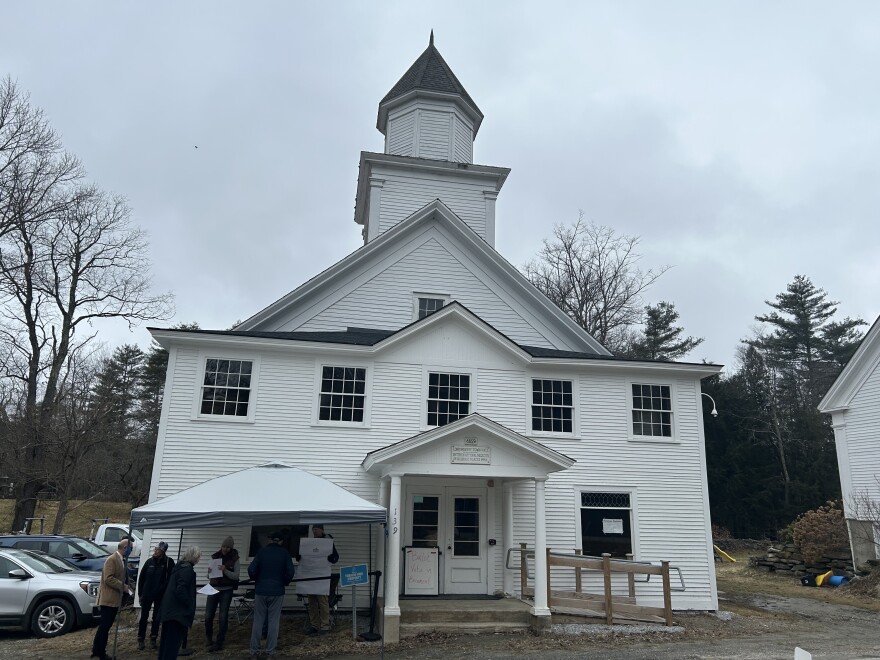The town of Londonderry will hold a special town meeting on Saturday to allow voters to weigh in on a new short term rental rule that would restrict how property owners rent out houses on platforms such as AirBnB or VRBO.
The Londonderry Select Board adopted a series of changes to its short-term rental ordinance in April that more tightly regulate newly registered rentals. Existing properties are not affected by the new amendments.
The changes include a rule that limits the number of nights a newly registered property can be rented out to 50 nights, unless the host lives on-site.
Another amendment bars newly purchased property from being used as a short-term rental for a year after the sale if the new owner doesn't live there.
A group of Londonderry residents who are opposed to the changes gathered enough signatures to force a townwide vote on whether to revoke the new rules, which is scheduled for Saturday.
“There are about nine changes that were made to the ordinance,” said Jessica Citera, who lives in Londonderry and also has a short-term rental. “We’re pretty much in agreement to all of the changes except for the two.”
The original Londonderry ordinance, which took effect at the beginning of 2024, only required owners to register their properties with the town and pay an annual fee.
Citera said she supported the original rules, which also set health and fire safety standards.
You know the housing crisis is not going to be fixed by banning short-term rentals. It’s not going to make homes more affordable.Jessica Citera
The town put the new rules into place earlier this year to try to slow down the growth in short-term rentals in Londonderry to increase the housing stock for full-time residents.
But Citera, who works in real estate, says controlling how property owners can use their own houses is not the way to open up more rental units.
“You know the housing crisis is not going to be fixed by banning short-term rentals,” she said. “It’s not going to make homes more affordable.”
The small Windham County town is located near three ski resorts — Magic Mountain, Bromley Mountain and Stratton Mountain.
Londonderry Short-Term Rental Coordinator Andy Dahlstrom said the town recognizes the importance of bringing in tourists, as well as supporting property owners who rent out their homes.
But after putting the original ordinance into place less than a year ago, the select board wanted to do more to prevent too many property owners from opening up their homes to rentals.
“We need stronger mechanisms, or more targeted ones, to nudge the incentives again, more toward long-term rental as opposed to a nightly rental,” he said.
There are currently about 100 short-term rental properties in the town, Dahlstrom said.
Vermont Short Term Rental Alliance Executive Director Julie Marks said her group has been trying to get a statewide law passed to regulate rental properties.
She says there are about 16 towns she knows of that have passed ordinances, and putting a hard cap of 50 nights on a short-term rental is among the most restrictive rules in the state, though other towns have also adopted similar limits.
“We were much more supportive of the original short-term rental ordinance that really did focus in on safety,” Marks said. “But we are not in support of these types of extreme use restrictions, such as owner occupancy, any caps on renting, or any restriction on when anyone can register their property.”
This story was updated to clarify the rules around short-term rentals.





